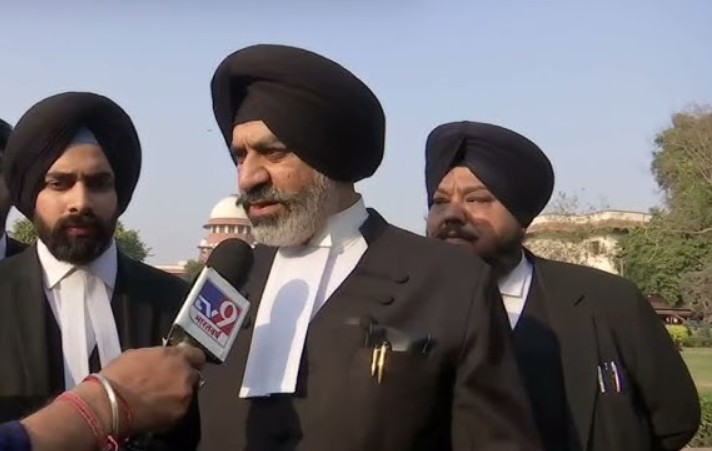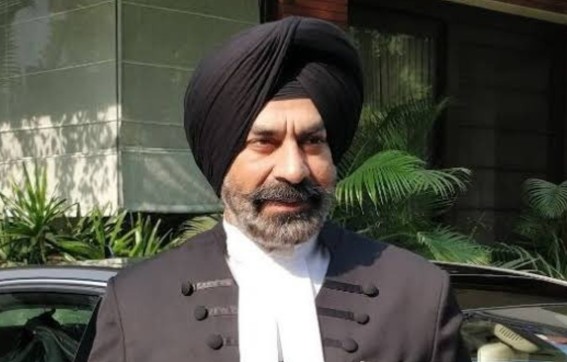The Advocate General (AG) of Punjab, Gurminder Singh, has resigned from his position, marking yet another abrupt change in the state’s top legal office. His resignation has sparked debates and discussions across political and legal circles, raising questions about the stability of the Punjab government’s legal framework. Singh’s exit is the latest in a series of resignations from the office of the Advocate General, which has witnessed frequent turnovers in recent years.
Although the precise reasons behind his resignation have not been officially disclosed, sources suggest that internal disagreements over key legal matters played a significant role in his decision. The resignation comes at a time when Punjab is grappling with several legal and governance issues, making the timing particularly crucial. Singh’s departure underscores the challenges the state government faces in maintaining a consistent legal strategy while handling high-profile cases.
The role of the Advocate General is of paramount importance in a state’s legal and administrative structure. As the chief legal advisor to the Punjab government, the AG is responsible for representing the state in the courts, defending government policies, and providing legal counsel on various matters. Frequent changes in this position can disrupt legal continuity and affect the government’s ability to effectively manage ongoing and upcoming legal battles.
Political analysts and opposition parties have been quick to react to the resignation, viewing it as a sign of deeper administrative instability. The opposition has accused the ruling government of failing to maintain a stable and competent legal team. According to them, the repeated resignations from the AG’s office reflect a broader governance crisis, with internal conflicts and policy disagreements leading to instability within the administration.

The Punjab government, on the other hand, has maintained that Singh’s resignation is a routine matter and that a new Advocate General will be appointed soon. Government officials have attempted to downplay the significance of the resignation, asserting that legal work in the state will not be affected. However, the frequent turnover of the AG’s office in recent years suggests a pattern of instability that cannot be ignored.
Singh’s tenure as Advocate General was marked by several high-profile legal battles. Punjab has been embroiled in multiple contentious legal issues, including disputes over agricultural policies, environmental concerns, law and order challenges, and federal-state relations. One of the most significant legal battles in recent months has been related to the ongoing farmers’ protests. Punjab has been at the center of the agitation against farm laws, and legal experts believe that these issues required a strong and consistent legal strategy—something that may have been disrupted by Singh’s departure.
Additionally, the Punjab government has faced legal challenges related to drug trafficking, organized crime, and governance policies. The legal framework to combat these issues requires a proactive approach from the Advocate General’s office. With Singh’s resignation, questions are being raised about how the state will continue to manage these legal battles without a stable legal leadership.
There is also speculation that Singh’s resignation was triggered by differences with the government over legal strategy. Some reports suggest that he was unhappy with political interference in legal matters and was facing pressure regarding certain cases. If true, this would not be the first time that an AG in Punjab has stepped down due to political or administrative tensions.
The legal fraternity has expressed concerns over the frequent changes in the office of the Advocate General. Many lawyers and legal experts believe that such instability weakens Punjab’s legal position in crucial cases. The state requires consistent legal representation, especially in cases that are heard before the Supreme Court and the Punjab and Haryana High Court. Constant changes in leadership can affect legal proceedings and put the state at a disadvantage.
The next appointment to the Advocate General’s office will be closely watched. The Punjab government will need to select a legal expert who not only has a strong grasp of constitutional and criminal law but also has the ability to work in a politically charged environment. The new AG will have to immediately take charge of pending legal cases, ensuring that there is no disruption in ongoing litigation.
Another significant challenge for the new Advocate General will be maintaining independence while working within the government framework. The AG’s role requires balancing legal responsibilities with political expectations. However, if political interference continues to be an issue, Punjab may see further resignations in the future.
The resignation of Gurminder Singh has also reignited the debate over judicial and legal appointments in Punjab. Critics argue that frequent changes in the AG’s office are indicative of a larger problem within the legal system, where merit-based appointments are overshadowed by political considerations. Some experts have called for a more transparent and stable selection process for top legal positions to ensure continuity and efficiency.
As Punjab moves forward in appointing a new Advocate General, the state government will have to address the concerns raised by Singh’s resignation. The need for a stable and competent legal leadership has never been more urgent. Whether the next AG will be able to bring the much-needed stability remains to be seen, but one thing is clear—Punjab cannot afford another abrupt change in this crucial position.
The political ramifications of this resignation will also play out in the coming days. With elections approaching, opposition parties are likely to use Singh’s exit to target the ruling government, accusing it of mismanaging legal affairs. The government, on its part, will have to work swiftly to restore confidence in its legal team and ensure that Punjab’s legal interests are well represented in court.
Gurminder Singh’s resignation is not just about the departure of a senior legal officer—it reflects the broader challenges facing the Punjab administration. Whether it is due to internal conflicts, political pressure, or personal reasons, his exit leaves a vacuum that the government must fill quickly and effectively. The coming weeks will be crucial in determining how Punjab’s legal system adapts to yet another leadership change.


